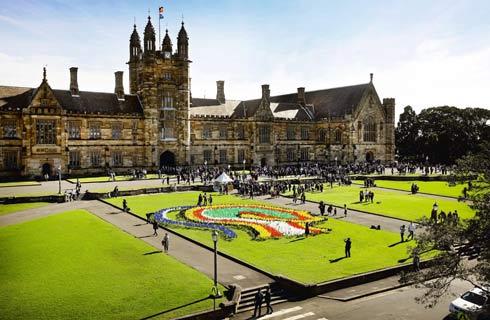国际学生入学条件
Internet based TOEFL (IBTOEFL): 80; Paper based TOEFL (TOEFL): 550; International English Language Testing System (IELTS): 6.5.
Have each college or university you have attended send one official transcript. These documents are required from every university or college you have attended.
Doctoral applicants only - Have an official copy of your Graduate Record Exam (GRE) score sent to the Office of Admissions (Institution Code 5219, Oceanography Code 0508).
If you are an international student, your scores on the Test of English as a Foreign Language (TOEFL) examination are also required.
Choose the specific program you are interested in to confirm the documents they require that
you provide. At a minimum they will need the following uploaded into your FSU Online
Application:
Statement of Interest: State your reasons for choosing this area of study and your academic goals. You may wish to include information about your academic background and
experience.
UPLOAD YOUR STATEMENT OF INTEREST INTO THE ON-LINE APPLICATION.
Transcripts: Provide a scanned version of your transcripts or an unofficial copy of your transcripts.
UPLOAD YOUR UNOFFICIAL TRANSCRIPTS INTO THE ON-LINE APPLICATION.
Resumé/CV: You may submit a resume if you like.
UPLOAD YOUR RESUME INTO THE ON-LINE APPLICATION.
Letters of Recommendations: Arrange for three letters of recommendation from professors, mentors, and/or employers familiar with your academic and/or research experience. In the on-line application system complete your recommendation providers information as directed. The application system will e-mail your recommendation providers and request that they submit a recommendation online. There is no set format for these letters.
展开
IDP—雅思考试联合主办方

雅思考试总分
6.5
- 雅思总分:6.5
- 托福网考总分:80
- 托福笔试总分:550
- 其他语言考试:Pearson Test of English (PTE): 55
CRICOS代码:
申请截止日期: 请与IDP联系 以获取详细信息。
课程简介
Biological oceanogaphers study life in the oceans. Their goal is to obtain a predictive understanding of the activities and distributions of marine organisms, from phytoplankton to apex predators. Current research in the EOAS department focuses on a variety of organisms from microbial communities to large marine mega-fauna at tropical to polar oceans and from the land-ocean interface to deep-ocean. Our research is often interdisciplinary, and uses a variety of approaches, including field observations, laboratory experiments, spatial analysis and theoretical models.<br><br>The program allows students to participate in research both in the laboratory and in the field. Many students get to participate in oceanographic cruises and some have the chance to work in the laboratories of our colleagues around the world. Because of the interdisciplinary nature of many of the questions biological oceanographers investigate, we often collaborate with chemical, geological, and physical oceanographers. Frequently, we collaborate with colleagues at other institutions in this country and abroad. Our students also present the results of their research at professional meetings all around the globe.<br>Any degree seeking student with at least a B.S. or B.A. degree in a basic science may apply to enter the Master’s program. Most successful applicants without a Master’s degree in oceanography or a closely allied field are accepted into the Master’s degree program. However, such applicants, as well as applicants with Master’s degrees in oceanography or a related field, may also apply directly to the Ph.D. program. Admission to the M.S. or Ph.D. program is granted upon a favorable majority vote of the faculty and upon agreement of a faculty member to act as a major professor. The candidate for the Ph.D. degree is required to take at least 18 semester hours in areas related to the student’s specialty in addition to the general M.S. requirements. The content of these 18 hours will be determined by the student, their advisor and the student’s supervisory committee. These requirements apply to students entering the Ph.D. program with an M.S. degree in a related field as well as students with an M.S. in Oceanography. Also, all students must take 24 semester hours of dissertation (OCE6980). If a student is working toward the Ph.D. degree without completing the M.S. degree, the M.S. minimum course requirement of 33 semester hours must be fulfilled as well as the Ph.D. requirements. Students completing the Florida State University M.S. degree may be readmitted to the Ph.D. program upon a favorable majority vote of the faculty. Each Ph.D. student must be continuously enrolled for at least 24 hours in any 12 month period.
展开







 预科
预科 奖学金
奖学金 实习机会
实习机会 在校学习
在校学习 跨境学习
跨境学习 校园授课-线上开始
校园授课-线上开始 在线/远程学习
在线/远程学习














 阿尔伯塔大学
阿尔伯塔大学

 不列颠哥伦比亚大学
不列颠哥伦比亚大学

 不列颠哥伦比亚大学
不列颠哥伦比亚大学

 不列颠哥伦比亚大学
不列颠哥伦比亚大学

 纽芬兰纪念大学
纽芬兰纪念大学

 韦仕敦大学
韦仕敦大学









 美国
美国